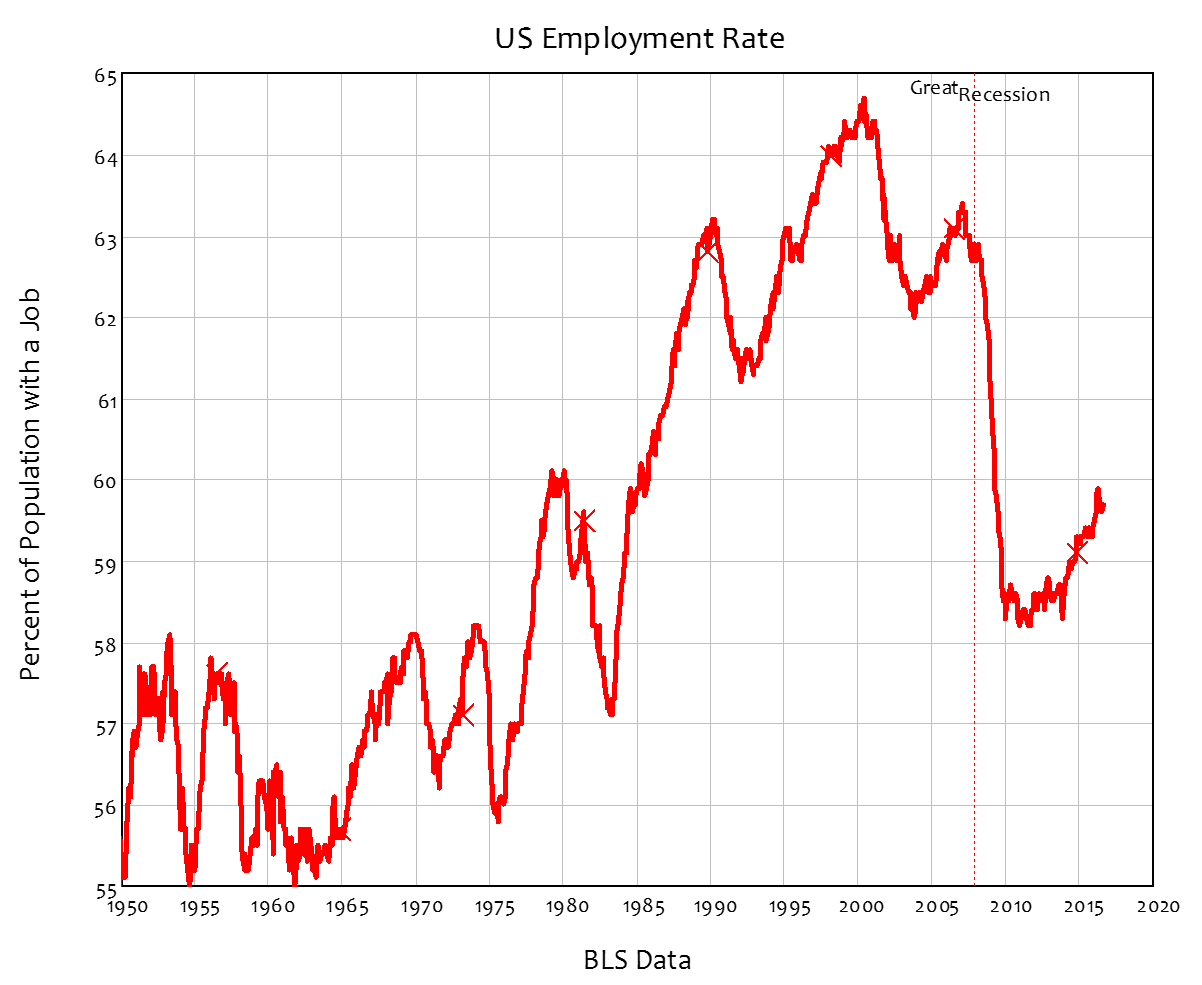“To Make America Great Again, Write Off The Private Debt”
Was für ein Titel. Besser kann man den Schlüssel für die wirtschaftliche Erholung nicht auf den Punkt bringen. Steve Keen hat schon erklärt, weshalb QE kein Gelddrucken ist. Heute kommt er auf den Punkt: Die Schuldenlast muss reduziert werden, um einen nachhaltigen Erfolg mit der Steigerung des Wachstums zu haben – wenn überhaupt.
Er hat seine Forderung als Brief verfasst, der auch bei Forbes veröffentlicht wurde. Die Kernaussagen:
- “The key source of America’s economic weakness today is something you have experience with: private debt. All leaders before you have obsessed about government debt while ignoring private debt, which is far higher (150% of GDP versus 100%) and far more dangerous.” – bto: Bingo! Es ist genau richtig und zeigt sich auch in diversen Studien.
- “You can do something about this, and unlike your purely political predecessors, your experience tells you that it can be done—the only question is how to do it.” – bto: Dass Trump es verstanden hat, zeigte er bereits im Interview am 9. Mai, als er auf die Möglichkeit des Gelddruckens verwiesen hat.
- “With debt (…) weighing them down, firms are reluctant to borrow and invest, while households are reluctant to use credit to consume.” – bto: Stimmt, allerdings haben gerade die großen Unternehmen Schulden gemacht und damit Financial Enginering betrieben.
- “Credit demand is now back to the average of the 1950s to 1970s—the ‚Golden Age‘ of America, when your supporters today and their parents had well-paying manufacturing jobs. But it will easily turn negative again (…) since your immediate predecessor put more effort into rescuing Wall Street than he did into rescuing Main Street.” – bto: Auch das ist richtig und trifft auch auf Europa zu. Wobei es hier so schlecht gemacht wurde, dass nicht mal die Banken wieder gesund sind.
Abbildung: Credit Demand
Quelle: Forbes
- “Washington insider (…) say that one person’s debt is another person’s asset, so the total level of debt doesn’t matter. What they ignore is that banks create money and demand when they lend, and both money and demand fall when debt is repaid.” – bto: Und auch sonst hilft es dem armen Schuldner nicht, wenn der Gläubiger viel Geld hat.
- “(…) they’ll tell you that this is ‚helicopter money‘, and that it’s a dreadful idea. But the reality is that they’re doing it already. It’s just that the Fed’s helicopter, which they call ‚Quantitative Easing‘, has been dropping that money on Wall Street rather than Main Street. (…) This drives up share markets, which benefits Wall Street and the 1% directly.” – bto: wie wir immer wieder sehen.
- “But there would be far more money in Main Street’s hands if you put it there directly. (…) the easiest way to illustrate it is to imagine that you tell the Federal Reserve to buy mortgages directly from the public.” – bto: Das erinnert mich an meine Idee aus dem Jahr 2009, wonach die Fed eine Put-Option auf alle Immobilien in den USA hätte schreiben sollen. Die Preise wären nicht gefallen, die Krise wäre sofort zu Ende gewesen.
- “With less debt, there’ll be more spending by Main Street, and, as a result, more employment.” – bto: wobei natürlich die Probleme des geringeren Wachstums von Erwerbsbevölkerung und Produktivität blieben.
- “(…) the employment rate shows that 3% less Americans are employed now than before the Great Recession. Part of that is demographic change, but most isn’t: fully 2 million less Americans aged 25-54 have a job now than had one in 2007.” – bto: und deshalb auch das Wahlergebnis.
Abbildung: The US economy has not recovered from the Great Recession
Quelle: Forbes
- “You can rebuild America’s crumbling infrastructure too, because you can fund the rebuilding by running a defici (…) People buy American bonds because it’s America, and they accept payment in American dollars for those bonds for the same reason. And who produces those dollars? Effectively, you do now. There are no practical limits to your capacity to produce them: it’s only the effect that matters.” – bto: “You just print the money”, um den neuen Präsidenten zu zitieren.
bto: Nichts an dem Brief ist auszusetzen. Voll auf dem Punkt.
→ Forbes: “James Montier says nothing is cheap and his GMO is holding cash”, November 2016









